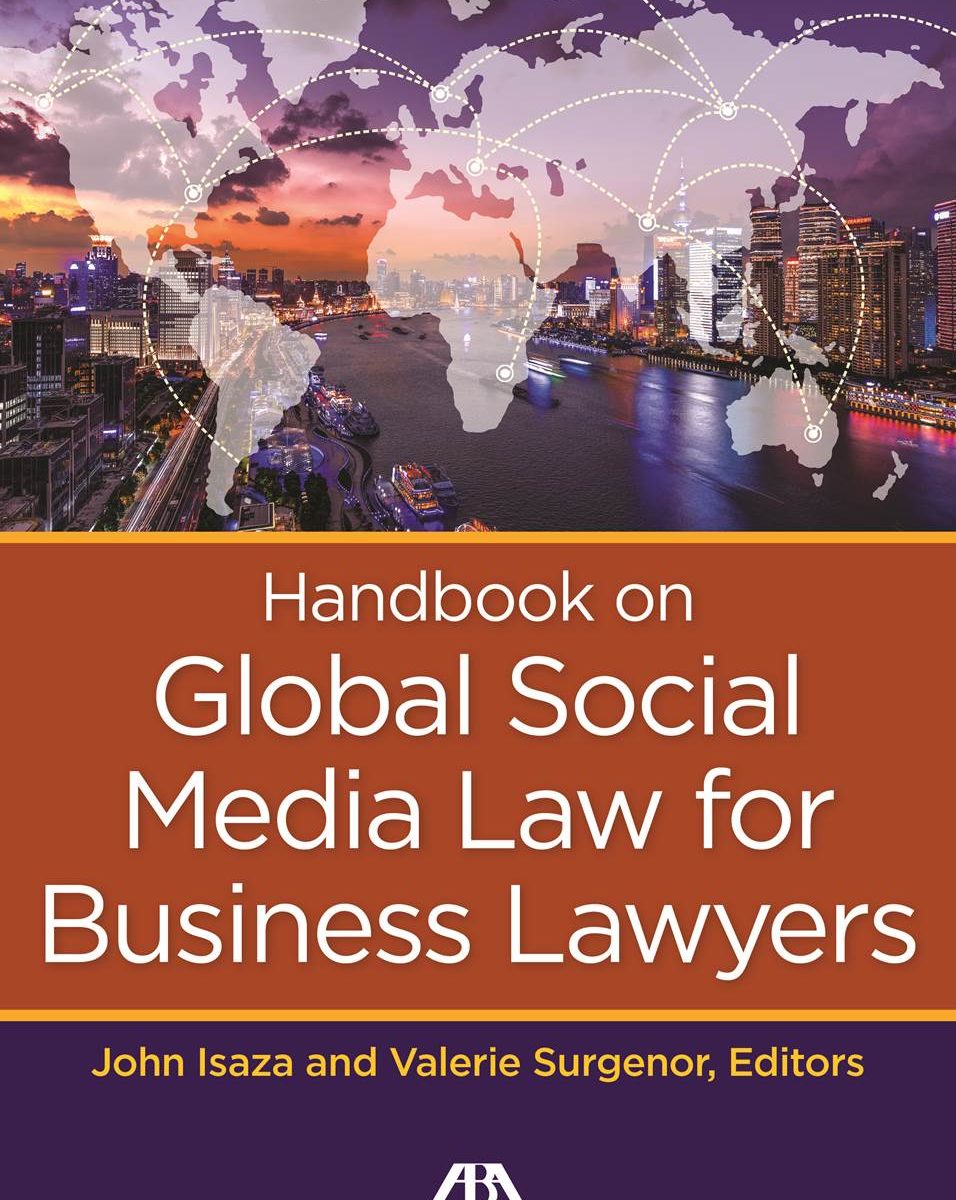I am proud to be among the 22 legal professionals, including 7 of my colleagues at Rimon, who contributed and co-authored a new book entitled Handbook on Global Social Media Law for Business Lawyers, published by ABA Publishing. This comprehensive work, sponsored by the Business Law Section of the American Bar Association, was co-edited by Valerie Surgenor, a partner in the Glasgow, Scotland, law firm MacRoberts LLP and John Isaza, my friend and partner here at Rimon, P.C. Although principally focused on the United States, there are contributions from foreign lawyers in key regions around the world, including Canada, the European Union, Australia, Russia and Asia.
The Handbook deals with national and international law principles and emerging issues related to social media law, ethics, compliance and governance, including cybersecurity, cyber terrorism and risk management in a social media environment (e.g., hacking, corporate espionage, data loss and data breach); intellectual property issues in social media; defamation, “fake news” and social media; implementation of a social media crisis plan; use of social media as a tool in recruitment of employees and the privacy implications to employers; promotional, endorsement and social media disclosure guidelines promulgated by the Federal Trade Commission in the US; and recent trends in UK and European social media legislation and regulation. There is a separate chapter that discusses information and records management within the context of social media.
If you are interested, you can order a copy directly from the ABA (Handbook on Global Social Media Law for Business Lawyers) and of course, if you need more information or want to discuss your particular requirements with knowledgeable and experienced professionals, feel free to reach out to me, Joe Rosenbaum, or to any of the lawyers at Rimon with whom you work with regularly.


